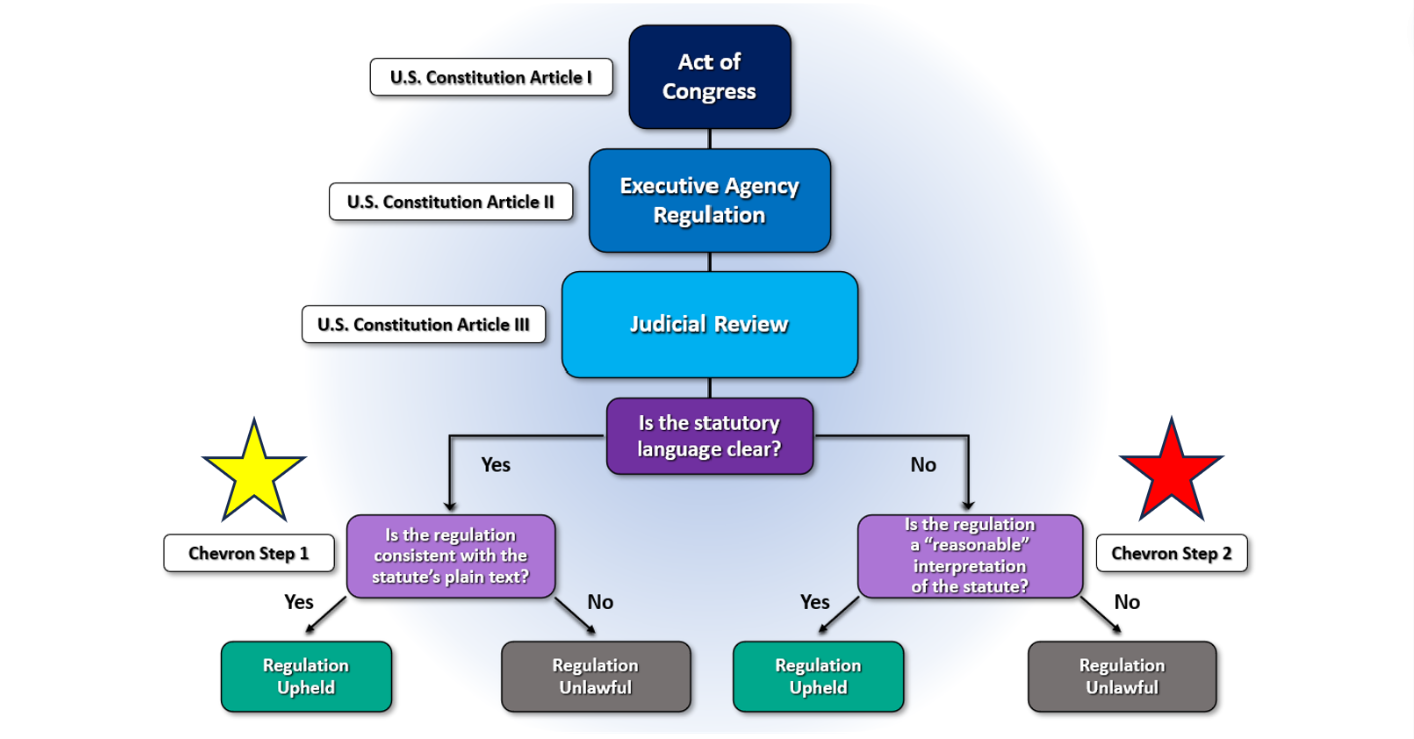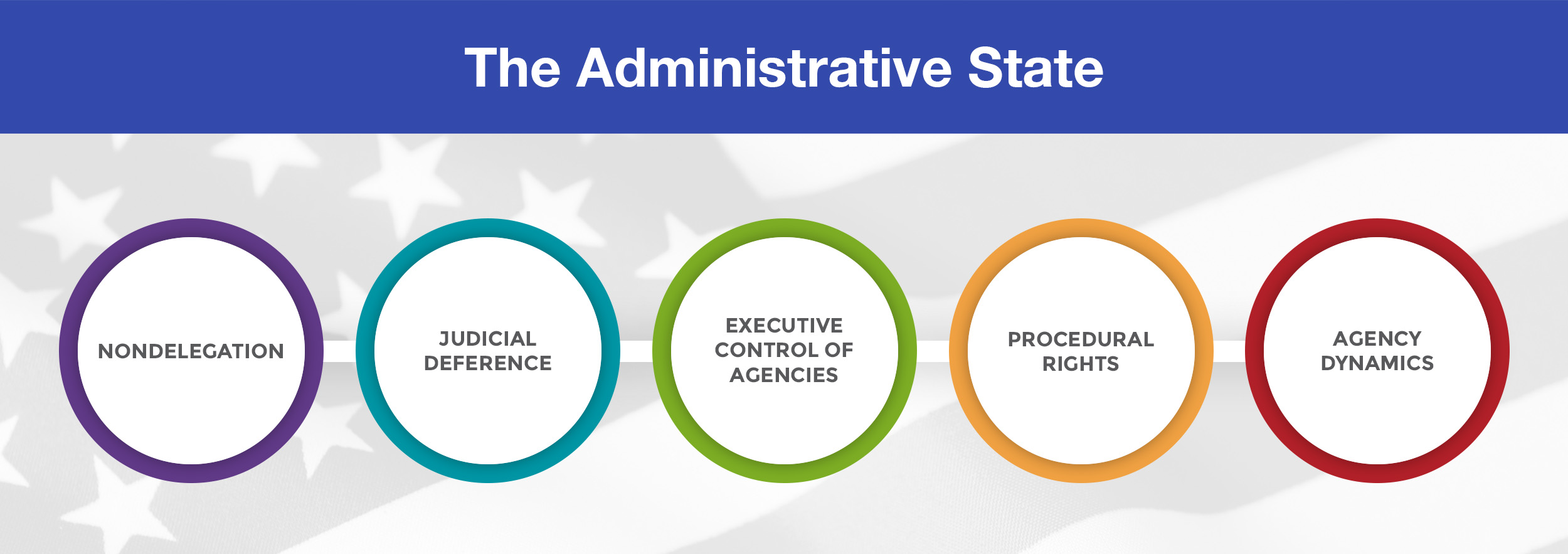Chevron Ruling Overview

Chevron ruling explained – The Chevron ruling, formally known as Chevron U.S.A., Inc. v. Natural Resources Defense Council, Inc., is a landmark Supreme Court case that established the legal framework for judicial review of agency interpretations of statutes. The ruling has had a significant impact on administrative law, and it continues to be cited as precedent in cases involving the scope of agency authority.
Legal Basis and History
The Chevron ruling was issued in 1984. The case involved a challenge to the Environmental Protection Agency’s (EPA) interpretation of the Clean Air Act. The EPA had interpreted the statute to allow states to set more stringent air pollution standards than those set by the federal government. The Supreme Court upheld the EPA’s interpretation, holding that courts should defer to agency interpretations of statutes if they are reasonable.
The Chevron ruling is based on the principle of deference to agency expertise. The Court recognized that agencies have specialized knowledge and experience in the areas they regulate. As a result, the Court held that courts should not overturn agency interpretations of statutes unless they are unreasonable.
Examples of Chevron Ruling Application
The Chevron ruling has been applied in a wide range of cases involving the scope of agency authority. Some examples include:
- In Auer v. Robbins, the Supreme Court held that the Department of Labor’s interpretation of the Fair Labor Standards Act was entitled to deference.
- In United States v. Mead Corp., the Supreme Court held that the Environmental Protection Agency’s interpretation of the Clean Water Act was entitled to deference.
- In Chevron U.S.A., Inc. v. Natural Resources Defense Council, Inc., the Supreme Court held that the Environmental Protection Agency’s interpretation of the Clean Air Act was entitled to deference.
Significance of Chevron Ruling in Administrative Law
The Chevron ruling has had a significant impact on administrative law. The ruling has established a framework for judicial review of agency interpretations of statutes. The ruling has also helped to strengthen the role of agencies in the regulatory process.
The Chevron ruling is a complex and controversial issue. However, it is an important precedent that has shaped the development of administrative law.
Chevron Deference in Practice

Chevron deference is a two-step process of judicial review that gives deference to the interpretation of a statute by the agency responsible for administering it.
In the first step, the court determines whether Congress has spoken to the precise question at issue. If Congress has not spoken to the precise question, the court moves to the second step and defers to the agency’s interpretation of the statute.
Factors Considered by Courts, Chevron ruling explained
When applying Chevron deference, courts consider several factors, including:
- The clarity of the statute
- The agency’s expertise
- The consistency of the agency’s interpretation
- The deference given to the agency by other courts
Case Studies
Chevron deference has been applied in a variety of contexts, including:
- Environmental regulation
- Taxation
- Health and safety
In each of these contexts, courts have deferred to the agency’s interpretation of the statute, giving great weight to the agency’s expertise and experience.
Criticisms and Controversies: Chevron Ruling Explained

The Chevron ruling has been the subject of much criticism and controversy since its inception. Critics argue that the ruling gives too much deference to government agencies, allowing them to interpret and enforce laws in ways that are inconsistent with the intent of Congress. They also argue that the ruling has led to a decline in judicial oversight of agency action, as courts are reluctant to overturn agency decisions even when they are clearly wrong.
Proponents of Chevron deference argue that it is necessary to give government agencies flexibility in interpreting and enforcing laws. They argue that agencies have expertise in their particular areas of responsibility and that they are better equipped than courts to make decisions about how to implement laws in a way that is consistent with their underlying purposes. They also argue that Chevron deference promotes judicial efficiency by reducing the number of cases that courts need to review.
The potential implications of overturning or modifying the Chevron ruling are significant. If Chevron deference were overturned, it would mean that courts would be more likely to overturn agency decisions that they believe are incorrect. This could lead to a more adversarial relationship between agencies and courts, as agencies would be less certain that their decisions would be upheld by the courts.
It could also lead to a decrease in the efficiency of the administrative process, as agencies would be forced to spend more time litigating their decisions in court. However, if Chevron deference were modified, it would be possible to strike a balance between giving agencies flexibility and ensuring that their decisions are subject to meaningful judicial review.
Arguments for Chevron Deference
- Agencies have expertise in their particular areas of responsibility.
- Agencies are better equipped than courts to make decisions about how to implement laws in a way that is consistent with their underlying purposes.
- Chevron deference promotes judicial efficiency by reducing the number of cases that courts need to review.
Arguments Against Chevron Deference
- Chevron deference gives too much deference to government agencies.
- Chevron deference has led to a decline in judicial oversight of agency action.
- Chevron deference allows agencies to interpret and enforce laws in ways that are inconsistent with the intent of Congress.
Potential Implications of Overturning or Modifying the Chevron Ruling
- If Chevron deference were overturned, it would mean that courts would be more likely to overturn agency decisions that they believe are incorrect.
- This could lead to a more adversarial relationship between agencies and courts.
- It could also lead to a decrease in the efficiency of the administrative process.
- However, if Chevron deference were modified, it would be possible to strike a balance between giving agencies flexibility and ensuring that their decisions are subject to meaningful judicial review.